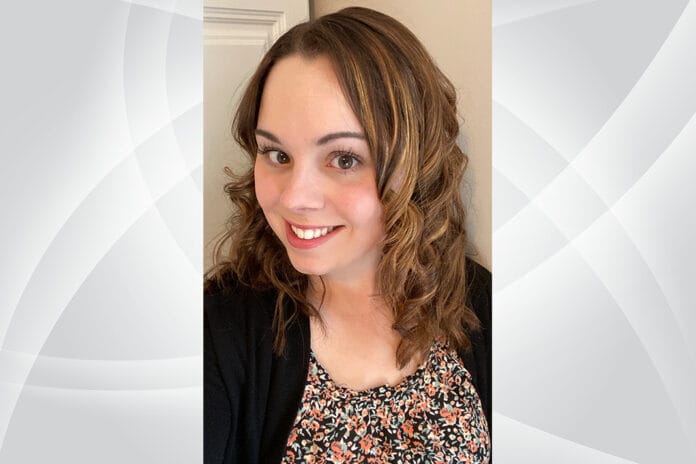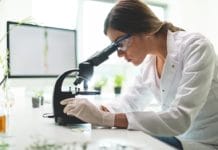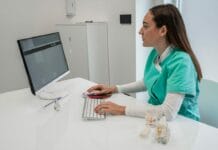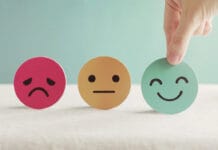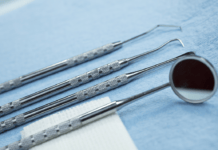So many dental hygienists are trailblazers who never get the recognition they deserve. It seems the same key opinion leaders receive the awards distributed in the dental hygiene community, which often leaves hygienists who are doing great work unrecognized. I am honored to write this article to spotlight a dental hygienist who goes above and beyond to serve a community that is often overlooked ‒ children with autism spectrum disorder and special needs.
The dental hygienist is Alicia Morris. She was nominated for the Today’s RDH Honor Awards, which is what brought her to my attention. Though she was not a recipient of the award, her work is very important and should not go unnoticed. So, I did a brief interview that I would like to share with all of you. Alicia provides some great insight into managing children with autism spectrum disorder in the dental chair.
Hatfield: I understand you work with children with autism spectrum disorder. What sparked your interest in helping these children?
Morris: My 6-year-old son and my youngest brother both have ASD (autism spectrum disorder). I have watched them both struggle with motor skills such as brushing, sensory processing such as textures, tastes, sounds, and lights, as well as communication. I also run my own support group on Facebook, CNY Support Group for Autism and Special Needs, and a frequently asked topic is “Where can I take my child with special needs to the dentist?”
I knew I had to do something in a quiet setting, where children ‒ and even adults ‒ can explore the dental chair at no cost and come as many times as they need until they are ready for dental treatment. I believe preventive dental care and patient education are the keys to helping families succeed both at home and in the dental office.
This is how the dental program “Open House” started. These appointments are made after we close for the workday, so there is more privacy and no extra drilling noises or other loud sounds, and we do not charge for them. The parents are made aware that we do not do any treatment or diagnosis. It is all play! My boss has been extremely supportive since I came to her with this idea two years ago!
Hatfield: I have a nephew who is autistic, so I understand how difficult it can be to treat patients with ASD. What advice would you give to other hygienists struggling to provide care for these children successfully?
Morris: There are several key things that can be done, even before the appointment begins! We have a social storybook of our office with real pictures, and we send this in a PowerPoint to the parents before the appointment. We also have a magnetic board with pictures, such as a mirror, bib, toothbrush, light, and say “ahh,” that we can arrange to make a story. Visuals are huge, especially if you have a child who is unable to communicate verbally.
At these “Open House” appointments, I have the parents complete a questionnaire about their child’s likes, dislikes, skills, and medical information. I have them bring their own toothpaste if they like or their iPad/communication device or headphones. We have sensory toys, a stuffed animal with fake teeth to work on brushing; this toy is very popular! I have found many children love the sink, watching the water fill up the cup, or feeling the polisher/prophy cup move in their hands.
The first few appointments are all explore and play. Counting teeth, looking with the mirror, “and tapping” with the explorer are all goals that can progress over time. Don’t forget to give frequent breaks, even if it’s a few minutes on their iPad, before you move on!
Hatfield: Do you have a favorite success story of a child you treated in your program?
Morris: I had a family who would bring their 8-year-old child with ASD every week until he was ready for a real appointment. He had oral motor and sensory challenges and did not like anything new or foreign going into his mouth. It took much practice time with timers and rewards to get him through the appointments. They would even bring his one-on-one aide to help. He was nonverbal, loved to watch videos of how things work, such as hand dryers and vacuum cleaners, had a habit of wearing the same color shirt every day, and was limited on the foods he would eat.
We had five appointments exploring the chair, learning how to open and count his teeth before leading up to the scaler and polisher. Giving him frequent iPad breaks with timers, he finally realized this was not a scary place to be, he was safe, and he started letting me scale and polish his teeth without hesitation ‒ if he could watch his video. It was such a great feeling knowing I could help this family.
There have been other parents who were afraid to take their children to the dentist for the first time. After attending an “Open House” session and seeing how well they did, the parents would schedule their “real prophy” right after!
Hatfield: What changes would you like to see in the dental hygiene profession that might help better serve children with ASD?
Morris: I would love to see more programs like this. We need to educate parents on the importance of preventive care both at home and in the dental office. If a child is nonverbal or unable to communicate and has tooth pain, the parent may not realize what’s going on until it becomes a bigger problem.
If we can spend time with these patients, learn about their needs, and how we can help them, then we can prevent major problems down the road. We have great careers as dental hygienists; take that extra step to make it memorable and life-changing!
I hope Alicia’s perspectives and experience will encourage other hygienists to implement protocols that will better serve children with autism spectrum disorder.
Before you leave, check out the Today’s RDH self-study CE courses. All courses are peer-reviewed and non-sponsored to focus solely on high-quality education. Click here now.

